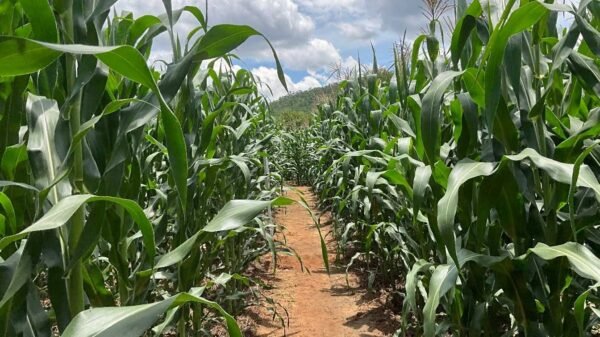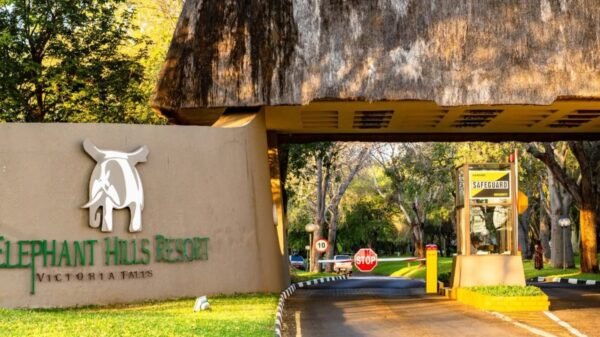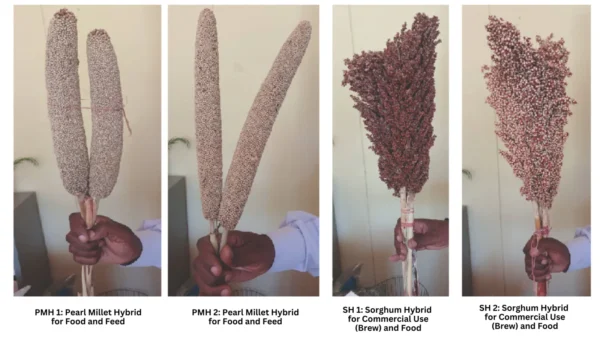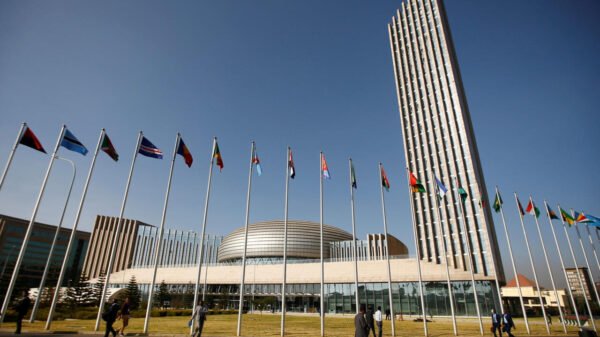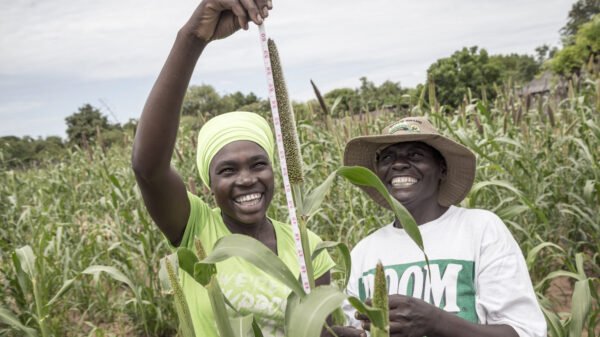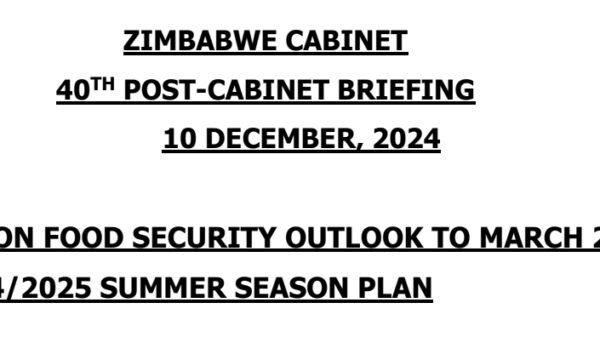AS many unanswered questions continue swirling around the Zimbabwean government’s new title deed scheme for beneficiaries of the fast-track land redistribution programme, the authorities are forging ahead despite the growing misgivings over multiple farm ownership, elitism, potential reversal of agrarian reforms, and lack of transparency.
The Lands ministry says the processing of deeds is progressing well, with 2 500 farmers expected to have received title by the end of March 2025.
On 7 March 2025, secretary for Lands Obert Jiri posed for the cameras in Harare as he presented title deeds to two farmers [see pictures below] in a gesture meant to communicate the government’s commitment to the agrarian reform cause.

Describing the introduction of a one-stop centre for title deeds as “a game changer”, the ministry points out that deeds are now being processed in just three days for “cash paid-up” farmers with valid offer letters.
“This initiative aims to curb multiple farm ownership, facilitate family inheritance, and provide exit strategies for those opting out of farming.
“Thumbs-up to the Government for launching this land tenure system, which will grant full ownership rights to beneficiaries,” says the ministry.
With Parliament failing to exercise oversight over the title deeds programme to ensure equity, inclusivity and democratic accountability, a cloud hangs above the government as the country sleepwalks into yet another controversy.
Not all Zimbabweans are equal
The Presidential Land Tenure Implementation Committee, chaired by Zanu PF oligarch Kudakwashe Tagwirei, added fuel to the fire when it published a statement [see below] announcing favourable payment terms for certain classes of Zimbabweans.

The totem pole…All Zimbabweans are equal, but some Zimbabweans are more equal than others.
Farmers with deep pockets who have the capacity to pay cash for land will enjoy a generous 15% discount on the purchase price. To benefit from the discount, a farmer must make full payment within a 90-day window.
“The firms will be processed within 3 days for farmers paying cash on the purchase price,” says Tagwirei’s committee.
The rest of the farmers — who have no ready cash and are hoping to finance their land purchase via loans or mortgages — have been placed at the bottom of the totem pole.
This special arrangement for rich citizens has raised eyebrows. It creates a dangerous impression that Zimbabwe’s agrarian revolution is designed to benefit — first and foremost — the privileged elite. But how does an agrarian revolution — meant to address historical injustices in land ownership — get contaminated with crass materialism? In terms of Zimbabwe’s founding values, every citizen has a birthright to land — and this cannot be predicated on the size of one’s pocket or the length of one’s curriculum vitae.
The other three special categories of people listed by the committee in their order of importance are: war veterans (15% discount); civil servants who have served 20 or more years (5%); and civil servants who have served at least 10 years (2.5%).
Where does that leave the bulk of the farmers? The committee says it is still negotiating with banks to avail mortgage facilities.
“Farmers who need mortgage arrangement are advised that, Government is finalising the modalities with selected banks for this facility. Once modalities are completed, we will inform the nation.”
A banking sector executive told Food For Thought that it will be difficult for financial institutions to participate in the mortgage scheme if banks are not allowed to seize land from farmers who default on loans. A genuine title deed must be bankable, registrable, and transferable. Anything short of that is worthless.
It will be remembered that Tagwirei’s committee got off to a controversial start after asserting that banks will not be allowed to seize land from farmers who default on loans. If that is the case, how will these so-called title deeds be used as collateral?
Most importantly, what guarantee is there that this new “title deeds” scheme is not yet another grand heist whose debts will be inherited by the state and the burden placed squarely on the shoulders of long-suffering taxpayers?
For decades, agriculture in Zimbabwe has been used by political elites and their cronies as a conduit for massive looting. From the Farm Mechanisation programme to Command Agriculture, the common thread has been systemic corruption.
Where’s Parliament?
From a social justice perspective, land reform in Zimbabwe was not only desirable but also necessary. It is both a moral and economic imperative. But the agrarian reforms must benefit the land-poor and not merely transfer wealth to a privileged black elite — amid the problem of rampant multiple farm ownership.
Some analysts have correctly stated that President Emmerson Mnangagwa’s decision to appoint a Presidential Land Tenure Implementation Committee, instead of utilising the existing Zimbabwe Land Commission, is problematic. The commission is a statutory body mandated with matters pertaining to the acquisition, auditing, administration, allocation, arbitration as well as alienation of agricultural state land.
The Land Commission’s mandate is enunciated in sections 296 and 297 of the constitution of Zimbabwe. That mandate is further fleshed out in the Land Commission Act [Chapter 20:29] which became operational in February 2018.
Had the Land Commission been tasked with the processing of title deeds, such an arrangement would have made it feasible for Parliament to fully scrutinise the programme. As matters stand, the Tagwirei-chaired committee was handpicked by Mnangagwa and is directly answerable to him.
Although Zimbabwe’s legislature — as currently configured — has been reduced to a mere rubberstamp, the oversight function of parliamentarians would have ensured a semblance of transparency in how the title deed scheme is administered.
All the same, MPs have a constitutional responsibility to demand serious answers from the Lands minister. Matters of agrarian reform are sacrosanct.–Staff Writer.
Please also read: New ‘title deeds’ scheme another agric scandal in the making

